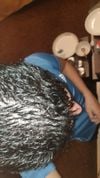Clinical Management in Psychodermatology
January 2009
in “
Springer eBooks
”

TLDR The document concludes that treating skin conditions should include psychological care and a multidisciplinary approach is essential for effective management.
The 2009 document on psychodermatology provided a comprehensive overview of the interplay between psychological factors and skin conditions, advocating for a biopsychosocial approach to treatment. It highlighted the prevalence of psychological issues among dermatology patients, with a significant portion exhibiting somatoform disorders, and the necessity of integrating psychological care into dermatological treatment. The document categorized psychodermatological disorders, emphasized the importance of treating psychiatric disorders in dermatological patients, and recommended multidisciplinary approaches, including psychotherapy and psychopharmaceuticals, for various skin conditions such as eczema, psoriasis, and alopecia. It also discussed the psychological impact of skin conditions like vitiligo, the relationship between emotional disorders and skin diseases, and the influence of anxiety and phobias on skin health. The document underscored the need for early intervention in cases of self-inflicted skin lesions and borderline personality disorder, the connection between allergies and psychological factors, and the importance of psychological evaluation in patients seeking cosmetic surgery. It addressed the prescribing of drugs for cosmetic purposes, the psychological aspects of hair loss, and the significance of addressing psychosocial factors in treatment plans. The document also recommended using self-assessment questionnaires and psychological tests to evaluate the impact of skin diseases on patients' quality of life and stressed the importance of psychotherapy, psychopharmacological therapy, and patient compliance in managing psychodermatological conditions.






